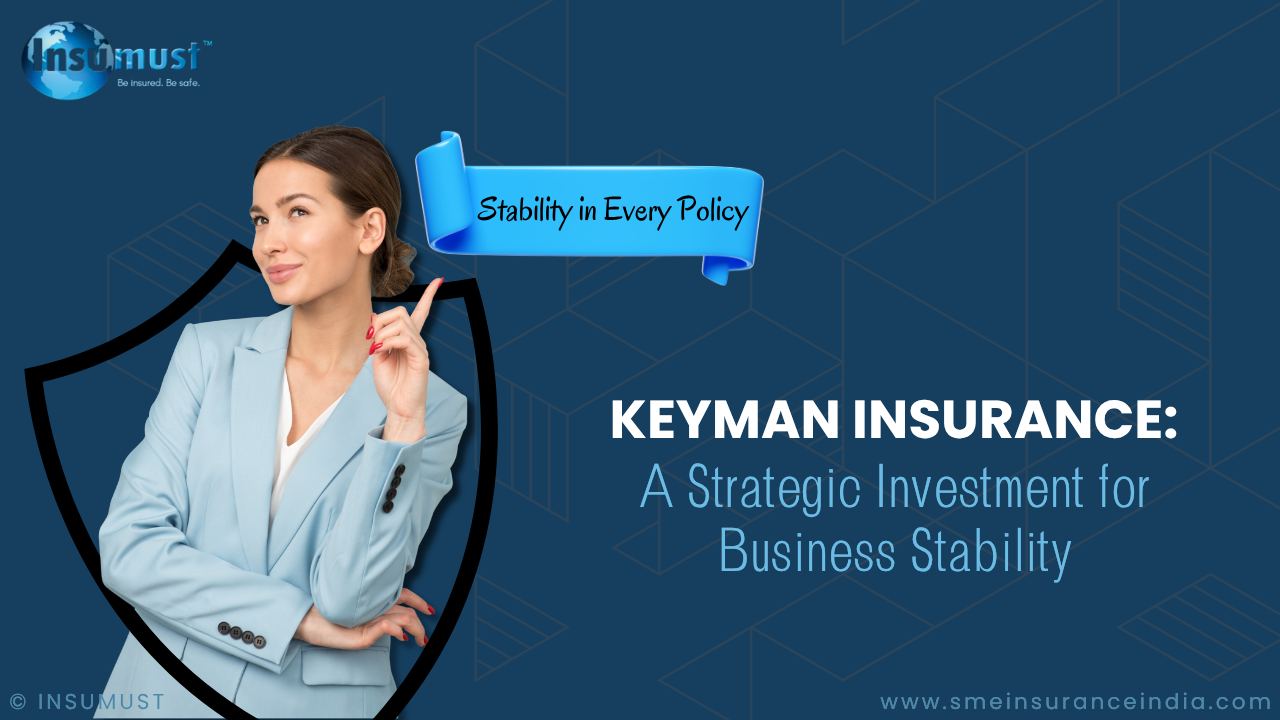This is an important policy for organisations particularly startups to manage the
setback of losing a critical employee.
What is Keyman Insurance Policy?
When a company feels that the loss of certain employees can significantly impact its
performance, then it purchases a Keyman Business Insurance Policy where:
· The policy is proposed by the company
· Premium payments are made by the company
· The life of ‘key’ employees is insured for a fixed amount
· The company is the beneficiary of the policy
Hence, a keyman policy offers coverage to the company for the losses arising due to
the death of its key employees.
Features of Keyman Insurance:
The ‘Keyman’ should not hold more than 51% of the company’s shares. Also, the total
shares held by the keyman and their family should not exceed 70% of the shares of the
company.
The maximum sum assured under Keyman Insurance is the lesser of:
· Three times the average gross profit of the company over the last three years
· Five times the average net profit of the company over the last three years
· 10 times the annual compensation of the keyman
The maturity date of the policy is usually equal to the retirement date of the employee
or the expiry date of the contract between the employee and the company. Add-on
covers and loans against the policy are not permitted and the company can be the only
nominee.
Benefits of Keyman Insurance:
· Financial protection to the company from losses due to the death of its key
employees.
· Keeps the company’s share price relatively stable since investors feel assured of
minimal financial impact due to the death of a key employee if the company has Key
Man Insurance
· It helps boost the valuation of the company since it has a monetary backup if it
loses its key employee
Keyman Insurance Tax Benefits:
· Companies can treat the premium paid as a business expense and claim tax
deductions under Section 37(1) of the Income Tax Act, 1961. This can help reduce the
tax liability of the company.
· If the key employee dies, then the company receives the death benefit. This
amount is taxable at the existing tax rates.
· If the employee of the company leaves their job, then the employer can assign
the insurance policy to that employee, who can specify a nominee who will receive
the death benefits. In such cases, the death benefit becomes an addition to the income
of the employee and is taxed as per the rates applicable to them.
Conclusion: A Key Man Business Insurance Policy offers liability management and
continuity to the company. It also helps boost employee morale and leverages tax
deduction benefits. It is primarily a term life insurance policy with the company as the
nominee. If the policy matures without the death of the key man, then the company
will receive no death benefit.

